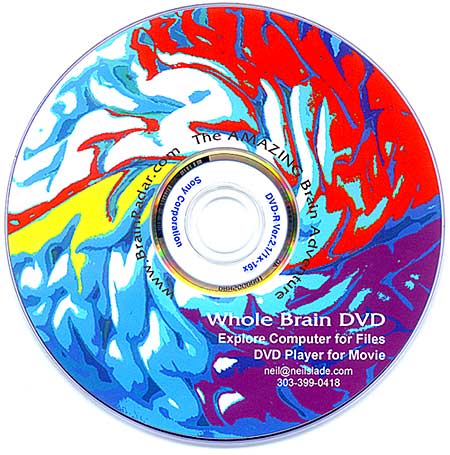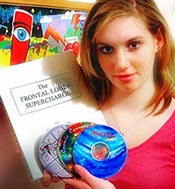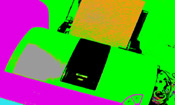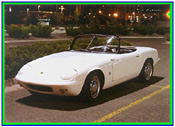|
INTRODUCTION
Welcome to this page
dedicated to inkjet printers and ink--- the NO BALONEY review and
info page. Almost EVERY commercial and even non-commercial printer review and
inkjet info shortchanges the consumer- and ignores long term usage
problems, and practical application of printers and ink.
THIS
PAGE LOOKS AT EVERYTHING beyond the superficial claims and typical shallow
reviews- typical reviews that GREATLY MISLEAD users and buyers of inkjet
printers and ink. GREATLY MISLEAD users and buyers of inkjet
printers and ink.
This has turned out to
be the SECOND most popular page on my entire site- which you MUST visit
when you are done here- THE AMAZING BRAIN
ADVENTURE LAB. If you think this printer page is good- just wait till you
explore the Brain pages- Click on Briana to visit Brain
Adventure Books for the most
amazing adventure of your life.
This
page is receiving THOUSANDS of hits a day, and I am constantly revising this
page as new information comes in, so bookmark this page, and visit
frequently.
New
info on the new season of Canon printers is down the page, in which I compare
with last year's superlative models.
Neil's MAIN
Suggestions SUMMARY:
1) Don't go broke
buying overpriced inkjet refills.
We have now found suppliers who actually offer ink cartridges at fair prices.
Nearly EVERY
retailer, and most internet sources we have found charges at least 300% to
600% times the price of these companies. We've tested their inks- they
work wonderfully, and
a fraction of the cost of the OEM ink you pay through the nose for.
These are NOT
paid endorsements in any way, just passing on our research in this area, more details
below.
We've tested several custom formula third party inks against Canon (and some
Epson) factory ink cartridges and there
is little reason- except for greed- that anyone should be paying $20- $60 to refill
their inkjet printers. It is obscene. Details below on this page.
But what about LIFE
SPAN of cheap second party inks? SEE THIS PAGE for my comments then read the
pages in Ink Jet Ink then read this page on COMPARING
INKS
2) For large quantities of
printing by professionals and artists, REFILL
your cartridges for a fraction of store bought carts. Details
below- DON'T
use off the shelf refill kits, however. Your ink will cost you1/20th the price
of regular refills. There are Continuous Flow Systems available- these
come with their own set of problems however, again details below...
3) If you need a printer, I suggest any Canon desktop regular printer at the mid-price range, $100 or more
(i.e. models i560, i860, i960, i900D, i9100,i9900) rather than anything else. I don't have any info on the small mini-portable printers, but will tell you this, the ink cartridges are pretty tiny.
REGARDING the new line of Canon printers:
Okay, Canon printers BEAT ALL, no question. But the new season of printers, the
PIXMA printers are a mixed bag and possible de-evolution of last years superlative i-series printers-
which were PERFECT. Alas, most companies are guilty of planned obsolescence, and
often make changes for changes-sake to sell new printers. I
recommend the Canon i960 above EVERY printer made-- but they are being
discontinued, so get one while you can, found for about $119-$135 online these days.
Planned obsolescence sucks.
The Canon i960 offers the fastest, most
vivid, most highest detailed, sharpest imaging of ANYTHING,
including all other Canon models. It is the LOTUS ELAN, the Ferrari, the Acura
NSX of inkjet printers. I have THREE of these.
The new $179
PIXMA IP6000
is 6 color just like the i960, with additional gimmicky features.
It does not appear to be as fast as the i960, but speed on these printers is
dependent on which setting you choose. At the lowest detailed settings, it IS as
fast. At the highest resolution, it is not- only the i8500 retains the i960's
lightning speed at highest resolution. The i6000D adds a few more features and
LCD screen-- $179 at Best Buy. This is a good printer, a great one for the
money.
The
i9900 prints as nicely as the 960, but is much
more expensive, and requires two additional colors (red and green) that
you don't need. It does allow for bigger prints if you really need that.
The i9100 is a better deal, big tray, and 6 color, though microscopically
not as absolutely fine as the 960- naked eye, might not be able to tell
the difference. A very very very minor difference in printing between the 9100
and the 960 The 9100 printer is/has been phased out. Figures!
The IP8500
again is much more
expensive than the 960, requires the two additional inks, and is for
all purposes the same speed as the 960.
Its the top new Canon printer for regular sized paper.
All of the
other PIXMA printers are only 4 color with an additional
black (pigment ink for text printing), equivalent to
the i560 models. These are good printers and suitable for most consumers, but
not as good as the 6 or 8 color printers for really semi-pro or pro use.
AND any CHROMO INK 8 color printers (9900
and 8500) will require two more ink cartridges for not a whole lot better
results, if any.
SO- get one of the i-series while you
still can-- ink will be available for years and years to come, and you'll get
more for your printer money, absolutely. When the time comes and you
can't get an i series printer-- the new PIXMA printers are still going to give
you better results and reliability than ANY other companies machines.
I do NOT work for Canon.
Avoid any printer under $100 unless you are a broke student or just need something cheap for very
occasional
use, or you really are not picky about the quality you
get..
4)
You can refill your laser printers with toner yourself, recycling the cartridge,
for 1/5th the cost of just replacing the whole cartridge. This is fairly easy in
most cases. Details at the bottom of this page. 5)
I have tried Continuous Flow systems for Canon printers. Sorry, but I did not
have long term success. Some
people HAVE had luck with these, including Colorbat customers www.Colorbat.com--
who makes good systems for Epsons at great prices. So, you're on your own. It
may be that if you do not print huge volumes that place a lot of stress on your
CFS system, you may be okay. I, however, print LOTS AND LOTS at one time, and
the CFS systems I've tried can not keep up with what I am asking my Canon
printer to do. I
have 3 Canon i960s, and they are WORKHORSES for massive printing requirements.
Fastest, sharpest, most dependable ink jets out there. 6)
DO NOT expect your paper inkjet prints to look EXACTLY like the preview on your
monitor. Both flat LCD
monitors and regular more common tube CRT monitors PROJECT light to your eyes.
Paper inkjet prints REFLECT light to your eyes-- color transmission is very
different between a monitor and a paper print. Even with the best calibration-
and most people don't even approach this- a print and you monitor will differ
significantly in worst cases, and somewhat in best cases. Adjust your printer
color settings from what you see on actual prints. You can calibrate your
monitor to get close, but chances are, for the best color rendition, look at the
print and adjust accordingly. *
*
*
Why is this a BRAIN
review? Because often reviews are written
(even by third parties) which are done poorly, and with motives that may
reflect conflict of interests. This is an honest evaluation done by yours
truly, seeking the best quality and results for reasonable cost.
AND I USE ALL OF
THIS STUFF- extensively all of the time, printing hundreds of photos every
month and THOUSANDS of documents and photos every year.
OFTEN, magazine and web
reviews are inaccurate- why? The people writing the reviews are COLUMNISTS, and
rarely use this stuff at a full time level. They make their conclusions based on
short term use, limited use, and frequently don't have the eye of a pro. They
may have a slanted bias for or against a printer for unexplained reasons. THEY
ACCEPT PAID ADVERTISING, duh- what do you think this does to accurate
opinions, eh? I've
seen all kinds of BAD reviews regarding printers, as well as cameras. Take any review in a
commercial site or magazine with a grain of salt. I use my printers ALL the
time, and have for years.
I recently looked at the CNET reviews of
inkjet printers-- TOTAL CRAP. This is really bad information to be giving people
per their ratings, and I genuinely feel sorry for anyone buying a printer based
on these kinds of reviews. Irrelevant and inconsistent, and things CNET editors
judged relevant----OOOOO@! it actually makes me disgusted. The editors at CNET
are morons to publish these ratings- but then, they accept commercial
advertising. BEWARE!! of reviews on commercial sites!
The main players
in the regular inkjet and inkjet photo printer consumer market are Epson,
HP, Canon, and Lexmark. What I looked at was detail, correct color, speed,
price, reputation, reliability and ease of use. I spoke with representatives
from the companies, dealers, and used the equipment. I did this on my own
then compared some reliable
expert
reviews, and found that my results were
in keeping with other reviews.
Any of today's inkjet
printers do a good job for
general non-too-picky use, and if you only use
your printer occasionally, most printers will suffice.
But, if you've got a real eye
for quality and reliability-- WATCH
OUT. For the same money you
will spend on a greatly lesser printer, you can get a printer way ahead of the
crowd.
GENERAL
NEW INFORMATION
Given all things
equal, SIX color (5 colors plus black) printers are superior for
lifelike and accurate color over the FOUR color (three colors plus black)
printers. This difference may not be noticeable or important however to
many people. For snapshots where
color imagery accuracy is not that important, it is a small difference.
You will pay more for six color systems than four color systems, as well
as for the ink. Look at the sample photos at the store- if you can't
tell the difference, and absolute color accuracy is not important to you-
factor this into your printer purchase/use decision. If you've got a decent eye,
and you do care and want the best- go 6 color. There
are now 7 and 8 color printers out there-- in my opinion, forget it. This is pure
overkill. 6 color printers will now deliver the same quality as a regular color
photo lab. Add 2 more colors- what... do you drive a Humvee to get to 7-11 and
get your groceries also- when a Honda will get 3 times the gas mileage, easier
to park, a fraction of the cost? Two more colors add more problems to deal with,
that you really don't need. The payoff is minimal, if it exists at all.
As far as ink goes,
we have now found outlets on the web that sell
printer model specific
outstanding quality ink
at a truly reasonable cost-- 1/6th the price of OEM ink or manufacturers
ink elsewhere. It's ink at the price IT SHOULD BE. See details below.
If you are replacing inkjet cartridges more than once every year (ha ha)
you should not be wasting money supporting greedy printing companies by
shelling out $50 for an ounce of ink. !!! How Canon, and Epson, and all
the rest rationalize charging outrageous prices for pennies worth of ink
is a story in corporate greed in itself. Okay, they make good printers--
charge fair prices for ink already.
INK AND PRINT LIFE Okay,
this discussion comes up immediately when dealing with THIRD PARTY INK
SUPPLIERS. Don't make the assumption that anything other than name brand ink
will last a fraction of the life span predicted by $12 -$50 name brand ink
cartridge makers. There
are ENORMOUS variables in what constitutes print life. Conditions, ink itself,
brand, paper, and how all of these interact. There is NO ONE ANSWER, and it is a
bad assumption to make that if you use the printer's ink and paper, you will get
the best results. Of course, that is what Canon, Epson, and HP would want you to
believe. God bless them, they've made great at-home photo printing possible- but
that's no excuse to gouge us for ink. I've
been using cheap Epson Glossy Photo paper ($20 for 120 8.5 X 11" sheets at
COSTCO) for years. I use third party CUSTOM FORMULA INK (not the generic off the
shelf one-ink-fits-all from Office Depot), which costs about 1/6 - 1/20 the
price of name brand ink depending on the packaging (4 oz bulk bottles cheaper,
obviously). I keep my prints hung on the wall with scotch tape in a brightly
sunlit room. I have yet to see and print fading or discoloration in 2 years of
any of my s900 or i960 prints. Maybe in ten years. The Canon FORMULA is
expected to last 25-27 years before ink degeneration- I would say this is very
optimistic. If you need
DETAILED information on print life, then you need to do serious homework. Don't
take mainstream media propaganda (PC magazine for example) as God's word. Think
about WHO buys advertising in their magazine....Their own article on this
subject was VERY limited in it's sensationalist testing. Start here instead: http://www.wilhelm-research.com/index.html then
read this: The MYTH of non-permanence of inkjet
prints: http://www.wilhelm-research.com/pdf/Digital_Photo_Pro_May_2004/Digital_Photo_Pro_May_2004.pd If
you are printing PROFESSIONALLY and selling your prints-- DO YOUR HOMEWORK. In
summary, Epson's with archival pigmented ink is the way to go to guarantee the
longest life. Canon printers won't take pigmented inks (with one exception). For
the typical self-home user, however, Epson's have distinct DISADVANTAGES over
Canon printers. See below. If
you are a home consumer use- use regular dyebase inks. They'll look better,
printer cheaper, and last plenty long enough provided you don't put your prints
in direct sunlight- even REAL color lab photos won't last in the sun- duh. There
are four companies whom I have bought ink for my Canon printer at fair prices,
and I've had excellent results with each. Each company offers some unique
advantage for your situation, so look at them all, and see my detailed notes
about INK below. I've spoken
with the actual manufacturer who supplies these distributors with their inks-
very honest, well informed people. I have no doubts- none- about the integrity
of their products and their equivalent quality to name brand inks. PIGMENT
ARCHIVAL INKS: All consumer inkjet printers start off using DYE based inks.
Archival PIGMENT inks are made, and offer better life-- at higher price. I
personally don't use them. However,
be aware, that feedback I've received from people using archival inks, is that
in general they do not yet quite equal regular dye based inks in brilliance and
accuracy- so that's the trade off. Do lots of homework if pigment inks interest
you.
Printing
success is really a BRAIN thing- click it on 
NEXT
SECTION "Ink Test Update" CLICK THIS and
Inkjet
Stuff Home
Off to: The Amazing Brain Music Adventure
| 





